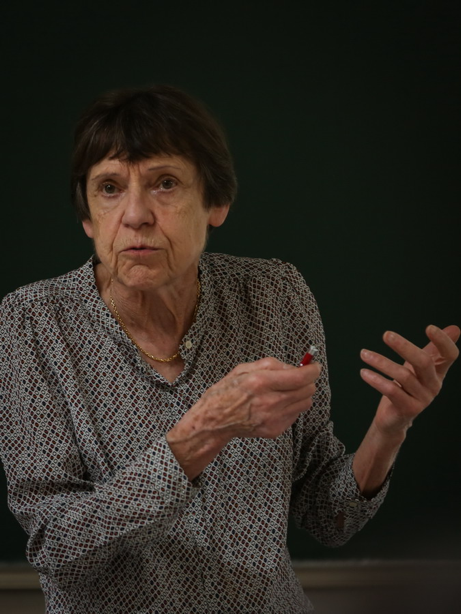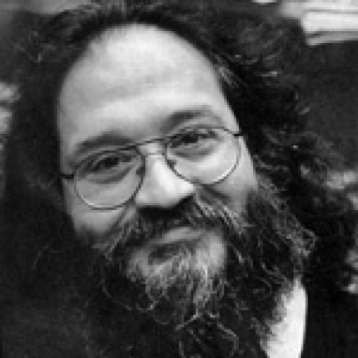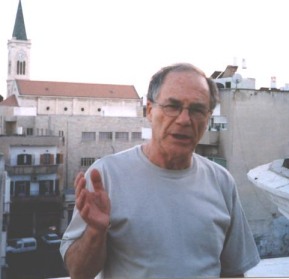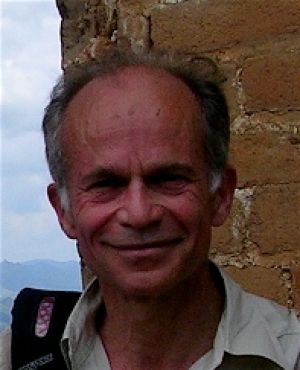A Comissão Externa de Acompanhamento do Programa de Doutoramento FCT em Filosofia da Ciência, Tecnologia, Arte e Sociedade é composta por um conjunto de professores de reconhecido mérito no campo da Filosofia da Ciência.

Claude Imbert
(professeur émérite à l’École normale supérieure)
Claude Imbert est une philosophe et logicienne française, professeur émérite à l’École normale supérieure.
- Histoire et structure. À la mémoire de Victor Goldschmidt, études réunies par Jacques Brunschwig, Claude Imbert et Alain Roger, Paris, Vrin, 1985[1].
- Phénoménologies et langues formulaires, Paris, PUF, 1992.
- Pour une histoire de la logique : un héritage platonicien, Paris, PUF, 1999.
- Maurice Merleau-Ponty, Paris, Ministère des affaires étrangères, ADPF, 2005.
- Lévi-Strauss, le passage du nord-ouest, Paris, L’Herne, 2008.
« Théorie de la représentation et doctrine logique dans le stoïcisme ancien », in Jacques Brunschwig (dir.), Les Stoïciens et leur logique, Paris, Vrin, 1978.
Préface à Wittgenstein, Le cahier bleu et le cahier brun, trad. Française, Paris, Gallimard, coll. « Bibliothèque de philosophie », 1996.
Préface à Jean-Pierre Belna, La notion de nombre chez Dedekind, Cantor, Frege : théories, conceptions et philosophie, Paris, Vrin, coll. « Mathesis », 1996.
Frege, Les Fondements de l’arithmétique, Paris, Seuil, coll. « L’ordre philosophique », 1970.
Frege, Écrits logiques et philosophiques, Paris, Seuil, coll. « L’ordre philosophique », 1971.

Shahid Rahman
(Université Lille III)
Shahid Rahman, né à New Delhi, est un mathématicien qui possède la double-nationalité argentine et allemande, professeur de logique et d’épistémologie à l’Université Lille III.
À l’Université Nationale du Sud à Bahia Blanca en Argentine), en passant par celle d’Erlangen-Nuremberg (Allemagne), il s’est formé en mathématique, en philologie, et a également étudié la psychologie et la philosophie.
Shahid Rahman est docteur en philosophie, psychologie et philologie de l’Université de Sarre. Sa thèse, sous la direction de Kuno Lorenz, en 1993, portait sur la logique du dialogue du point de vue de la théorie des catégories. Son Habilitation à la Direction de Recherche, en 1997, fut consacrée à Hugh MacColl, aux problèmes des fictions et à la logique connexe. Depuis 2001, il est professeur de logique et d’épistémologie à l’université des sciences humaines de Lille III (France).
La partie la plus importante de son travail concerne la logique dialogique. Sa principale contribution a ainsi été de la systématiser pour permettre le développement et la combinaison de différentes logiques. Depuis le début des années 1950, ses créateurs, Paul Lorenzen et Kuno Lorenz avaient développé la logique dialogique dans le but de fonder la logique intuitionniste. En 1987, lors d’une intervention à l’Université de Sarre, Rahman suggéra pour la première fois le lien entre les dialogues et les topoï de la théorie des catégories, même si à l’époque ce lien ne concernait que les fondations de la logique intuitionniste. La seconde partie de sa thèse de doctorat, publiée en 1993, a développé cette suggestion, tandis que la première partie était consacrée à la toute première étude systématique des relations entre les dialogues, les tableaux, et leur métathéorie.
Rahman et ses équipes de recherche (tout d’abord à l’université de Sarre avec Helge Rückert, puis à Lille avec le groupe pragmatisme dialogique, fondé en collaboration avec Laurent Keiff, proposèrent une redécouverte de la logique dialogique à une époque où elle disparaissait progressivement de l’agenda de la recherche en philosophie.
Sous l’influence de Rahman, la logique du dialogue fut convertie en un cadre théorique général où étaient étudiées, entre autres, la logique conditionnelle, la logique libre, la logique modale normale, la logique modale hybride, la logique modale non-normale, la logique modale de premier ordre, la logique paraconsistante, la logique linéaire, la logique pertinente ou encore la logique connexe.
Rahman and H. Rückert (editors), New Perspectives in Dialogical Logic. Synthèse 127 (2001).
Rahman S. On Frege’s Nightmare. A Combination of Intuitionistic, Free and Paraconsistent Logics. In H. Wansing (ed.), Essays on Non-Classical Logic, World Scientific, New Jersey, Londres, Singapore, Hong Kong, 61-85, 2001.
Rahman S. Un desafío para las teorías cognitivas de la competencia lógica: los fundamentos pragmáticos de la semántica de la lógica linear. In M. B. Wrigley (editor), Dialogue, Language, Rationality. A Festschrift for Marcelo Dascal, Special volume of Manuscrito, vol. XXV-2. 383-432, octobre, 2002.
Rahman, Non-Normal Dialogics for a Wonderful World and More. In J. van Benthem, G. Heinzmann, M. Rebuschi and H. Visser (eds.) The Age of Alternative Logics. Springer (2006).
S.Rahman/L. Damien/M.H. Gorisse, Dialogique temporelle et hybridation. In M. Rebusqui & T. Tulenheimo (ed.), Logique et théorie de jeux, Kimé, 2004, 17-38.
Rahman and L. Keiff, On how to be a dialogician. In Daniel Vanderken (ed.), Logic Thought and Action, Springer (2005), 359-408.
Rahman and C. Dégremont, The Beetle in the box. In T. Aho and A-V. Pietarinen (eds.) Truth and Games. Essays in honour of Gabriel Sandu. Societas Philosophica Fennica (2006).
Rahman and T. Tulenheimo, From Games to Dialogues and Back: Towards a General Frame for Validity. Dans Ondrej Majer, Ahti-Veikko Pietarinen and Tero Tulenheimo (ed.), ‘Games: Unifying Logic, Language and Philosophy. LEUS: Springer, Part III, 2008.
Daniel Andler
(Université Paris-Sorbonne, Paris IV, France)
Daniel Andler holds doctoral degrees in mathematics from UC Berkeley and Paris. After specializing in model theory and teaching mathematics in various universities in and around Paris, he moved to positions in philosophy in Lille and then Nanterre. He is now the professor of philosophy of science and epstemology at Université Paris-Sorbonne (Paris IV). He was for many years co-director and then director of CREA (Centre de recherche en épistémologie appliquée, Ecole polytechnique and CNRS, Paris). He has just stepped down as founding head of the Department of Cognitive Studies at Ecole normale supérieure, Paris. He was a founding member of the European Society for Philosophy and Psychology and is the founding and current President of the Société de philosophie des sciences and vice-president of the Division of Logic, Methodology and Philosophy of Science (DLMPS) of the International Union of History and Philosophy of Science.
He writes mostly on the foundations of cognitive science, with an emphasis on context, normativity and the interface with the social sciences. He has recently become involved in the issue of technological convergence and its effects in particular in education. Editor or co-editor of four volumes, he has co-authored a two-volume work in philosophy of science. He is currently working on a couple of connected book projects, one focussing on knowledge, the other on mind.
______

Marcelo Dascal
(Tel Aviv University, Israel)
Marcelo Dascal is Professor of Philosophy at Tel Aviv University, where he has taught since 1967. He was Dean of the Faculty of Humanities from 1995 to 2000. M.D. graduated in philosophy and electrical engineering at the University of São Paulo (Brazil). He studied linguistics and epistemology in Aix-en- Provence (France) and obtained his Ph.D. at the Hebrew University of Jerusalem, under the supervision of Yehoshua Bar-Hillel. M.D. was born in Brazil, and lives in Israel since 1965. He is married to Varda. They are the parents of Hagit, Shlomit and Tamar and the grandparents of Adi, Lior, Ohad, Noga, Jonathan, Gilead, Almog, and Naomi. In Israel, he taught at the Hebrew University of Jerusalem and at Ben-Gurion University of the Negev, where he was the founder and first head of the Department of Philosophy. Abroad, he taught at the universities of S. Paulo, Brasília, Campinas and Unisinos (Brazil), Lisboa (Portugal), Lugano (Switzerland), Massachusetts (Amherst), California (Berkeley), Monash (Melbourne, Australia), UNAM and UAM (Mexico), Ecole des Hautes Etudes en Sciences Sociales (Paris), Université de la Sorbonne Nouvelle (Paris III), Università degli Studi di Bologna (Italy), and others. M.D. devotes much of his energy to teaching, intent in contributing to the formation of the coming generation of high quality teachers and researchers. In addition to his undergraduate teaching, M.D. has supervised thirteen completed Ph.D. dissertations and twenty two completed M.A. dissertations, and is currently supervising several others. He lectured and attended scientific meetings throughout the world, being invited as keynote speaker in many of them. He is currently a member of the board of many scientific associations and journals. He is President of the New Israeli Philosophical Association and of the International Association for the Study of Controversies. He has been elected in 2003 for a five-year term as a member of the Steering Committee of the Fédération Internationale des Sociétés de Philosophie (FISP), and re-elected for another five-year term in 2008.M.D. held research positions at the universities of Indiana, Stuttgart, Bochum, Technische Univ. Berlin, UNED (Madrid) and the Centre d’Etudes de la Philosophie Moderne (CNRS, Paris), and conducted research on the pragmatics of native languages in the Amazon area. In 1985-1986 he was a Fellow of the Netherlands Institute of Advanced Studies (Wassenaar) and in 1994-1995 he was a Fellow of the Institute for Advanced Studies, The Hebrew University of Jerusalem.In the winter term of 2002/3, he was granted the Leibniz Professorship at the Institute for Advanced Studies of Leipzig University (Germany), where he was the first Leibniz scholar to hold this position.

